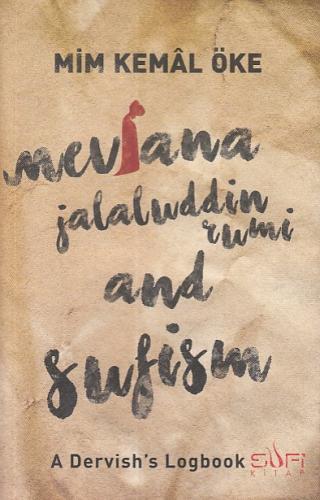
“Would you commiserate with a sufferer and share his sorrow?”
Sufism is a long journey through which the wayfarer, the salik in Sufi terminology, passes seven stages of the soul under the guidance of his master, murshid. In Sufi parables, this process is associated with a voyage to which the sailors begin reciting God’s name. The navigation in this work, however, is the one of a boat belongs to the wayfarer who sail to the spiritual waters, towards God, towards Oneness with the Universe.
Through God is the route. To feel Him is the gift, the destination is spirit or the inner man inside the wayfarer. Indeed, the whole voyage is a story of self-realization. This process is strictly adhered to a special form of education, “the education of love”. Here, the dervish is the one who comprehends the inattention he is in and contemplates this journey whose every stop with one beautiful name of God contains the metamorphoses within the spirit.
This intuition acquired via this indispensable guidance within the scope of Qur’an and the teachings of the Prophet Muhammad is precious because of the fact that the twenty-first century man suffers without being aware of what underlying factors reside on the grounds of his woe. Since therefore, such souls become anxious, nervous and burden both themselves and the society they live in. Mevlana Jalaluddin Rumi and Sufism is a book of dialog between the guide and the aspiring disciple in the directions of Mevlana Jalaluddin Rumi’s Masnavi and the teachings of other masters.
“My son, the wounded gazelles club here is. If you ask for participation, knock the door.”
“Would you commiserate with a sufferer and share his sorrow?”
Sufism is a long journey through which the wayfarer, the salik in Sufi terminology, passes seven stages of the soul under the guidance of his master, murshid. In Sufi parables, this process is associated with a voyage to which the sailors begin reciting God’s name. The navigation in this work, however, is the one of a boat belongs to the wayfarer who sail to the spiritual waters, towards God, towards Oneness with the Universe.
Through God is the route. To feel Him is the gift, the destination is spirit or the inner man inside the wayfarer. Indeed, the whole voyage is a story of self-realization. This process is strictly adhered to a special form of education, “the education of love”. Here, the dervish is the one who comprehends the inattention he is in and contemplates this journey whose every stop with one beautiful name of God contains the metamorphoses within the spirit.
This intuition acquired via this indispensable guidance within the scope of Qur’an and the teachings of the Prophet Muhammad is precious because of the fact that the twenty-first century man suffers without being aware of what underlying factors reside on the grounds of his woe. Since therefore, such souls become anxious, nervous and burden both themselves and the society they live in. Mevlana Jalaluddin Rumi and Sufism is a book of dialog between the guide and the aspiring disciple in the directions of Mevlana Jalaluddin Rumi’s Masnavi and the teachings of other masters.
“My son, the wounded gazelles club here is. If you ask for participation, knock the door.”
| Taksit Sayısı | Taksit tutarı | Genel Toplam |
|---|---|---|
| Tek Çekim | 195,00 | 195,00 |





















